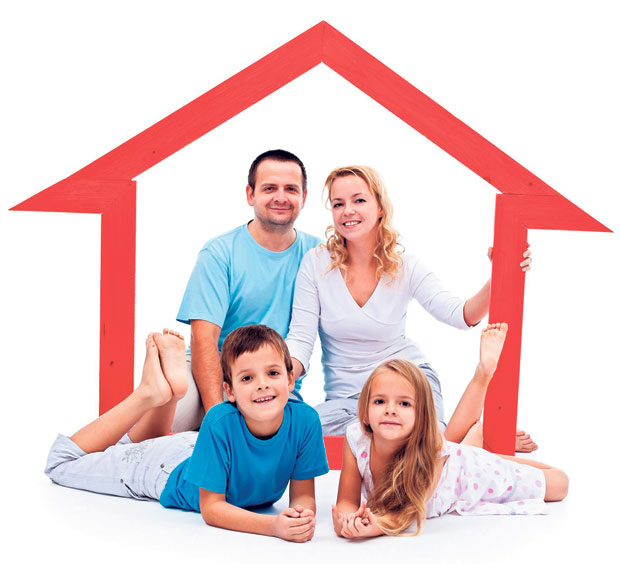Feeling a bit moody these days? Here’s “proof” positive that your surroundings have a profound effect on your well-being
QUESTION OF THE WEEK: I notice that the state of my environment does affect me, but I’m curious as to whether or not there have ever been studies done about this. Is there any “proof” that the environment influences our well-being? I’m more of a skeptic, I guess, and would appreciate any information you can offer.
In 2005, I went to the feng shui world symposium where close to 100 of the world’s leading experts gave presentations on their areas of expertise. The majority of presenters discussed various aspects of feng shui application. However, what I found most interesting were those who introduced disciplines complementary to feng shui.
I loved the scientific information about dangerous EMF’s (electromagnetic frequencies from electrical items) and Baubiologie (the analysis of a building’s “health” and how unseen toxins adversely affect the occupants), but the lectures on environmental psychology interested me most because, like you, I craved “proof” beyond what I already knew that the environment affects us.
What is environmental psychology?
Environmental psychology is a direct study of the relationship between the environment and its inhabitants. Hundreds of peer-reviewed studies have been documented since the mid-’80s, showing multiple correlations and confirmations of the principles I speak about in feng shui. These studies show conclusively that a home’s most important value is its fundamental role in the physical and psychological well-being of its inhabitants. The studies also showed that without a comforting home, people aren’t prepared to optimally meet the challenges of everyday life.
Comfort is key
In my consultations, I often tell clients to choose furniture for their home that is aesthetically pleasing, reflects their taste and feels good. Recent research supports this. If the seating in the home makes people feel warm and comfortable, their social experiences while in that space will be warm. The influence of your surroundings on your mood is significant because mood determines how we think, and our thoughts and how we convey them to others define us as human beings. A positive mood tends to broaden our thinking, and broader thinking has broader repercussions, especially in shared family spaces.
For example, if we are in a positive mood, we tend to get along better with others, make better decisions, and are better problem solvers, more creative and mentally efficient, more flexible and understanding of others, and more generous and socially responsible.

Environmental stress
In a feng shui consultation, my goal is to create a stress-free environment so that the client can be more productive. One study showed how environmentally induced stress eats up the mental processing power at our disposal. When stressed by things in our home, we tend to focus on trying to figure out what’s happening in the world around us and how to manage it.
For example, an image in the home, such as Edvard Munch’s painting, “The Scream” (a scary image of a person with both hands on her face, mouth agape), can trigger unconscious insecurities and fear, creating unnecessary stress. An image of a jungle may seem innocent enough, but, because so many survival-compromising things can happen there, such images are considered a no-no because of what they can trigger subconsciously.
Identifying environmental stress in your home
What is stressful for one person may not be for another, and some of the stimuli that either stress or soothe are highly individual and can vary even among members of the same family. In the previous example I gave, if the Munch image was purchased by your loving spouse during an especially happy time of your life and you loved Munch’s work, the effect may be positive. On the other hand, if your husband purchased the painting as a gift to cover up an affair that you found out about, its effect might be negative.
Research can show us typical stress reducers, but it’s important to be conscious of items in the environment as they relate to guests. If you know your guests intimately, you may know that an item that pleases you may make someone else feel uncomfortable. You can temporarily remove the item. If in doubt, place the more “personal” things in the private areas, keeping public areas for more universally positive images.
Environmental psychology supports feng shui
When I found out that studies were done on the impact the environment has on its inhabitants and that those studies supported feng shui, I found the confirmation I was looking for. It also helped me understand on another level why it was important to be more conscious of what I have in my home. I hope it does the same for you!
Alice Inoue is a life guide at Alice Inoue Life Guidance LLC, a company committed to assisting people in living empowered lives. Alice shares her wisdom as a professional speaker and personal consultant, and offers a series of instructional DVDs on feng shui, as well as her award-winning books on feng shui, happiness and spiritual life wisdom. Visit www.aliceinspired.com to read her blog, sign up for her newsletters and download useful feng shui tips.